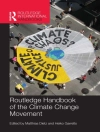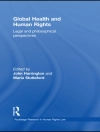Kathy Charmaz presents the definitive guide to doing grounded theory from a constructivist perspective. This second edition of her groundbreaking text retains the accessibility and warmth of the first edition whilst introducing cutting edge examples and practical tips.
This expanded second edition:
– explores how to effectively focus on data collection
– demonstrates how to use data for theorizing
– adds two new chapters that guide you through conducting and analysing interviews in grounded theory
– adds a new chapter on symbolic interactionism and grounded theory
– considers recent epistemological debates about the place of prior theory
– discusses the legacy of Anselm Strauss for grounded theory.
This is a seminal title for anyone serious about understanding and doing grounded theory research.
Cuprins
An Invitation to Grounded Theory
Gathering Rich Data
Crafting and Conducting Intensive Interviews
Interviewing in Grounded Theory Studies
The Logic of Grounded Theory Coding Practices and Initial Coding
Focused Coding and beyond
Memo-Writing
Theoretical Sampling, Saturation and Sorting
Reconstructing Theory in Grounded Theory Studies
Symbolic Interactionism and Grounded Theory
Writing the Draft
Reflecting on the Research Process
Despre autor
Kathy Charmaz was Professor Emerita of Sociology and the former director of the Faculty Writing Program at Sonoma State University. She joined the first cohort of doctoral students at the University of California, San Francisco, where she studied with Anselm Strauss. She wrote in the areas of social psychology, medical sociology, qualitative methods, and grounded theory, and over her career wrote, coauthored, or coedited 14 books, including two award-winning works: Good Days, Bad Days; The Self in Illness and Time, and Constructing Grounded Theory. She received the George Herbert Mead award for lifetime achievement from the Society for the Study of Symbolic Interaction, the Leo G. Reeder award for distinguished contributions from the Medical Sociology Section of the American Sociological Association and the Lifetime Achievement award from the International Congress of Qualitative Inquiry. Professor Charmaz also gave workshops on qualitative methods, grounded theory, symbolic interactionism, and scholarly writing around the globe.












